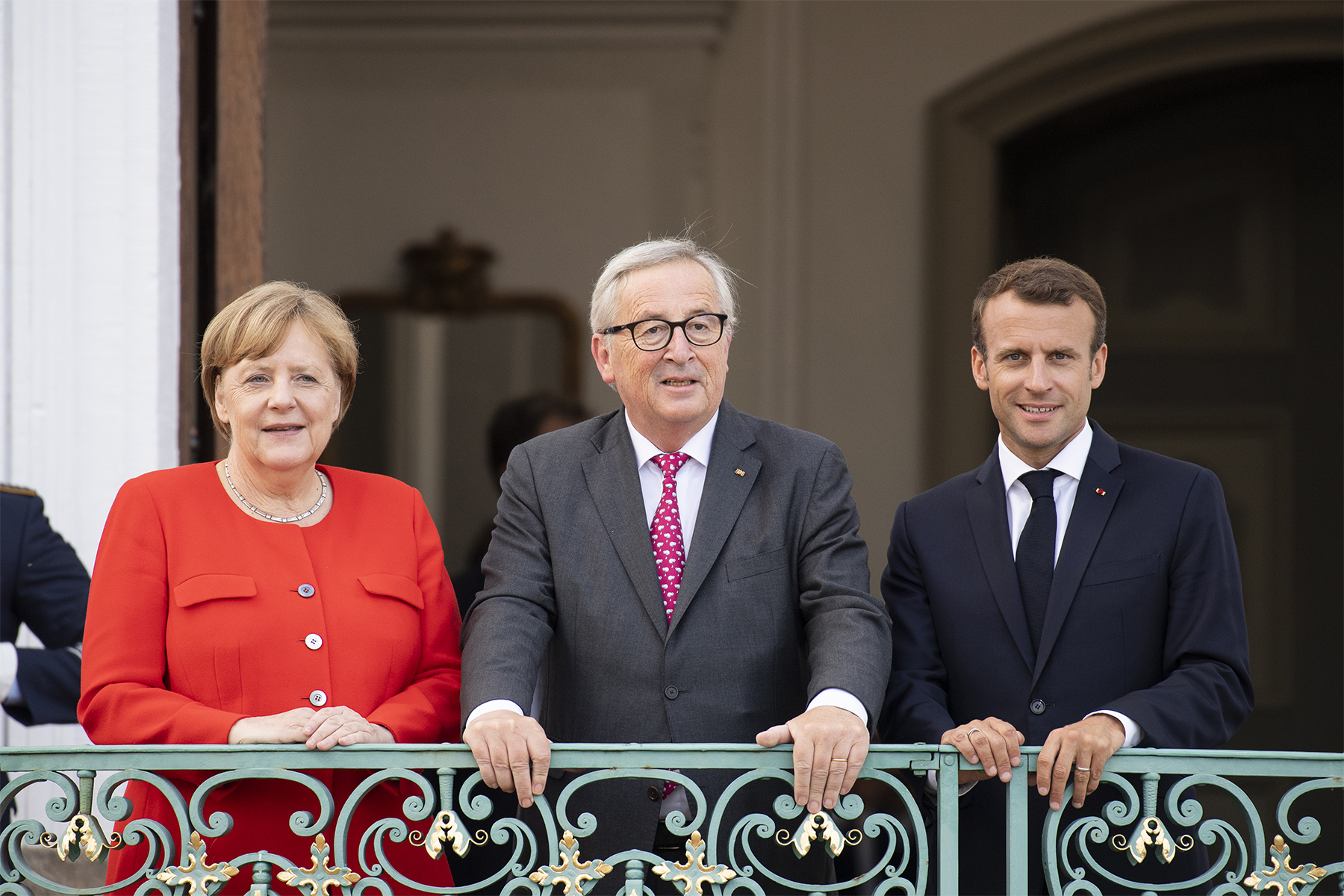On Friday November 9, 2018, Chancellor of Austria Sebastian Kurz made a statement about the detention of a retired Austrian officer on suspicion of spying for Russia. Minister of Foreign Affairs of Austria Karin Kneissl cancelled her December visit to Russia. That very same day, the Ambassador of the Republic of Austria to Russia, Johannes Aigner, was summoned to the Ministry of Foreign Affairs of the Russian Federation. Journalists expressed concern that the situation would have an impact on the development of relations between Russia and Austria and further effect the EU–Russia relationship. Minister of Foreign Affairs Sergey Lavrov expressed his regret that the West was increasingly turning to “microphone and megaphone diplomacy” instead of turning to Russia directly for clarification, which has always been the case in international relations.
The fallout from this incident will only become clear later. It is unlikely that it will result in any serious consequences, for example, a new round of sanctions or a sharp deterioration in relations. At the very least, Friday’s events did not affect the development of interaction at the level of track one and a half diplomacy. On Monday November 12, the Russian International Affairs Council (RIAC) hosted a seminar entitled “EU–Russian Relations in the Context of the Republic of Austria’s Presidency of the Council of the European Union.” The meeting was organized by RIAC in conjunction with the Embassy of the Republic of Austria in Russia and the European Union Delegation to the Russian Federation. It was attended by Deputy Minister of Foreign Affairs of the Russian Federation Alexander Grushko, Ambassador of the Republic of Austria to Russia Johannes Aigner and the Head of the European Union Delegation to the Russian Federation Markus Ederer. Participants included ambassadors of EU countries and Russian experts on EU–Russia relations. During the closed-door discussion, the ambassadors and experts talked about factors influencing the development of bilateral relations between Russia and Austria, and between Russia and the European Union, and outlined a number of development trends. It is important to note here that Friday’s incident was not brought up or discussed at the meeting.
We May Have Stumbled, but We Have Not Fallen Down
On Friday November 9, 2018, Chancellor of Austria Sebastian Kurz made a statement about the detention of a retired Austrian officer on suspicion of spying for Russia. Minister of Foreign Affairs of Austria Karin Kneissl cancelled her December visit to Russia. That very same day, the Ambassador of the Republic of Austria to Russia, Johannes Aigner, was summoned to the Ministry of Foreign Affairs of the Russian Federation. Journalists expressed concern that the situation would have an impact on the development of relations between Russia and Austria and further effect the EU–Russia relationship. Minister of Foreign Affairs Sergey Lavrov expressed his regret that the West was increasingly turning to “microphone and megaphone diplomacy” instead of turning to Russia directly for clarification, which has always been the case in international relations.
The fallout from this incident will only become clear later. It is unlikely that it will result in any serious consequences, for example, a new round of sanctions or a sharp deterioration in relations. At the very least, Friday’s events did not affect the development of interaction at the level of track one and a half diplomacy. On Monday November 12, the Russian International Affairs Council (RIAC) hosted a seminar entitled “EU–Russian Relations in the Context of the Republic of Austria’s Presidency of the Council of the European Union.” The meeting was organized by RIAC in conjunction with the Embassy of the Republic of Austria in Russia and the European Union Delegation to the Russian Federation. It was attended by Deputy Minister of Foreign Affairs of the Russian Federation Alexander Grushko, Ambassador of the Republic of Austria to Russia Johannes Aigner and the Head of the European Union Delegation to the Russian Federation Markus Ederer. Participants included ambassadors of EU countries and Russian experts on EU–Russia relations. During the closed-door discussion, the ambassadors and experts talked about factors influencing the development of bilateral relations between Russia and Austria, and between Russia and the European Union, and outlined a number of development trends. It is important to note here that Friday’s incident was not brought up or discussed at the meeting.
Austrian Presidency of the Council of the European Union
Presidency of the Council of the European Union changes hands among EU member countries on a rotating basis every six months. During the six-month presidency, the country chairs meetings of the Council at all levels, ensuring consistency of the European Union’s work within the Council. To this end, the European Union employs a mechanism of a “trio presidency,” or simply Trio. Trios set long-term goals and draw up a common agenda on the main issues to be considered by the Council over the course of the next 18 months. Each country then prepares a more detailed programme on the basis of this agenda for their respective six-month terms. Presidency of the Council of the European Union entails, first and foremost, supervising the Council’s work on the development of EU legislation. The president country chairs meetings of the Council’s various structures, with the exception of the Foreign Affairs Council. However, it does work in close cooperation with the High Representative of the Union for Foreign Affairs and Security Policy and supports its work.
Austria took over presidency of the Council of Europe for the second half of 2018, being part of the trio that includes Estonia and Bulgaria. Contacts between the Ministry of Foreign Affairs of the Russian Federation and the European External Action Service have been adequately maintained during the Republic of Austria’s presidency. Dmitry Medvedev has met with Jean-Claude Juncker, Sergey Lavrov has met with Federica Mogherini and regular working meetings and expert discussions have taken place. Indeed, Russia has a special relationship with Austria. Throughout the crisis, Austria has been a bridge between Russia and the European Union, maintaining an objective and loyal attitude towards the country and not succumbing to the general hysteria sweeping the continent. Austria has always believed that it is important to preserve communication channels with Moscow. For example, Austria did not follow the lead of other Western countries that expelled Russian diplomats in a display of solidarity with the United Kingdom following the Skripal case. In the context of the crisis in EU–Russia relations, it is in the interests of both sides to have a neutral mediator. We have to hope that Austria will continue to fulfil that role.
Islands of Cooperation between Russia and the EU
The discussion at the seminar once again demonstrated that Ukraine remains a sticking point in EU–Russia relations. Moscow and Brussels differ in their opinions on the reasons for the crisis in their relations, as well as on the reasons for the Ukrainian crisis and current events around it. As far as the European Union is concerned, the crisis has been primarily caused by Russia’s policy towards Ukraine. Russia, meanwhile, believes that the causes of the crisis had been simmering long before the events in Ukraine, owing to the accumulated problems between Russia and the West. Key among these problems, according to Russia, is the eastward expansion of NATO in total disregard of Russia’s security interests. Moscow regards the events in Ukraine in 2014 as a coup d’état that threatens the Russian-speaking population and ethnic Russians living in Ukraine, while the European Union sees them as a popular protest against the regime. Both Russia and the European Union call for the resolution of the Ukrainian crisis and the implementation of the Minsk agreements. However, the approaches of the two sides are irreconcilable. Russia believes that Kiev’s policies are blocking the implementation of the Minsk agreements. The European Union sees otherwise, blaming Russia’s policies for impeding the proper fulfilment of the agreements. Russia does not even see itself as a party to the conflict. Moscow is in favour of improving relations with the European Union, as it believes that further deterioration is not in the interests of any of the parties. For the European Union, improving relations involves changing Russia’s policies.
Despite the deep crisis in EU–Russia relations, there do exist certain “islands of cooperation.” First and foremost, humanitarian cooperation remains one of the few areas of regular interaction between the two sides. This includes cooperation in science, culture, education and academic exchanges. Liberalizing the visa regime would contribute to greater mobility and success in this area, but it is highly unlikely in the foreseeable future given the current political climate.
When states experience difficulties in their official relations, non-governmental channels are often used to maintain a dialogue – non-profit organizations, analytical centres, contacts among academic institutions and scientists, expert dialogues, etc. The political situation could very well change at some point in the future, which is why it makes sense now to work out a strategy for cooperation if and when that does happen, at least at the expert level.
Russian experts and members of the political community support the idea of cooperation between the European Union and the Eurasian Economic Union (EAEU), seeing it as a niche area of interaction with the participation of Russia and the European Union. However, European experts and EU officials have expressed their concerns that the EAEU is not a purely economic integration association. In particular, many European experts see the creation of the EAEU as an attempt to restore Russian influence in the post-Soviet space. At the political level, the reaction is more restrained. The Global Strategy for the Foreign and Security Policy of the European Union states that the European Union supports regional integration and is prepared to cooperate with regional associations. However, the Eurasian Economic Union is not named as one of those associations. EU officials complain that the interests and positions of the EAEU member countries are not aligned, which makes it difficult to cooperate with it as an association. At the same time, attempts have been made to cooperate with the Eurasian Economic Union at the technical level. It is probably best in this situation to work out issues of interaction at the level of track one and a half diplomacy beforehand, involving representatives from interested EU and EAEU countries in the process.
Russia and the European Union have common interests with regard to China. In particular, many experts believe that both players could take a more proactive stance on China’s Belt and Road Initiative to strengthen connectivity in the Eurasian region. Cooperation could be built in the format of the European Union, Russia, the Eurasian Economic Union, China and Central Asian states.
Of course, this set of initiatives is not enough for a full-fledged cooperation agenda, but it is a niche for interaction during the crisis in the relations between Russia and the West. Limited interaction between Russia and the European Union is evident against the background of a rapidly changing world, the growing threat of terrorism and extremism, the conflict in the Middle East, the technological revolution in the military sphere, the growing threats in cyberspace and the significant changes in the foreign policy of the United States under the Donald Trump administration, which has seen the country increasingly becoming a factor of instability and unpredictability in global politics. It is in the interests of both Russia and the European Union to come together to resolve these issues, as well as many others, in a coordinated fashion.






